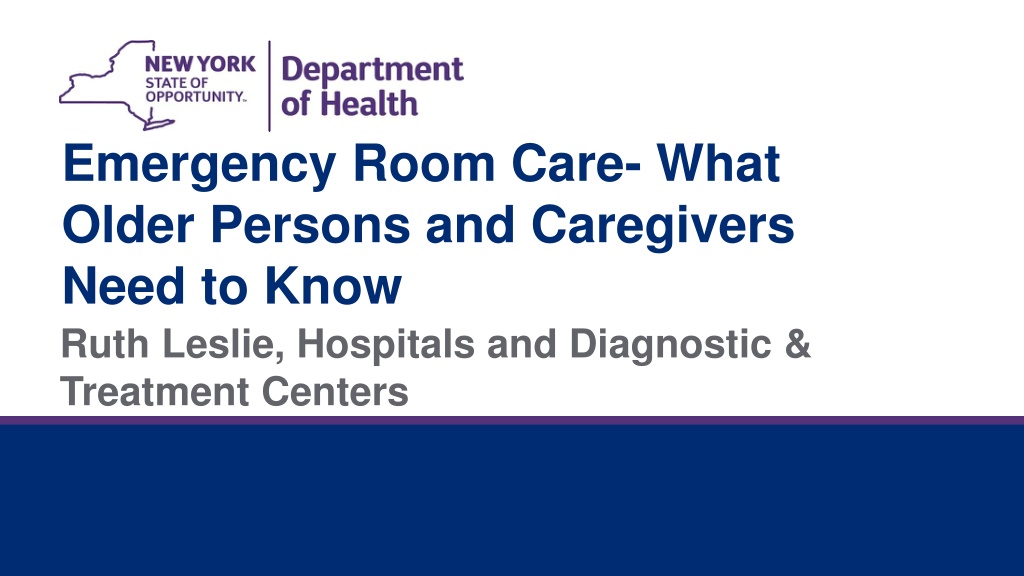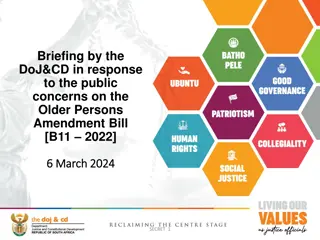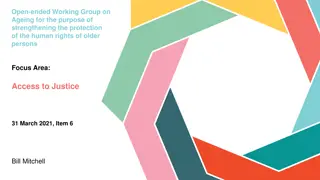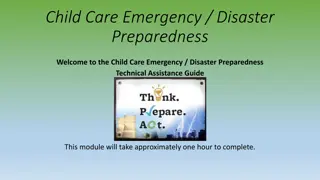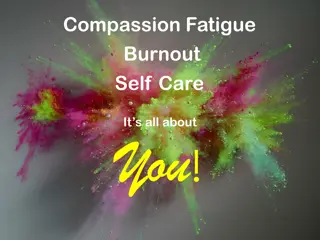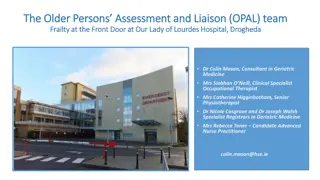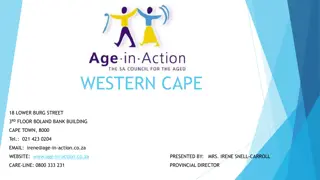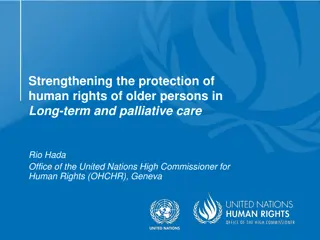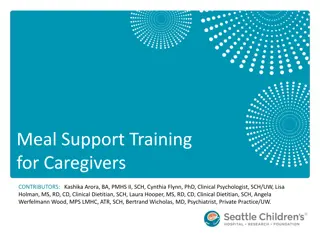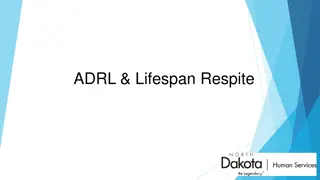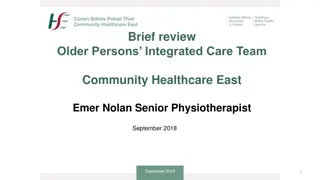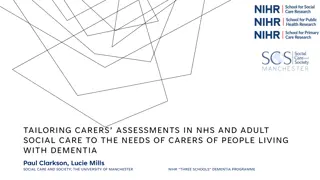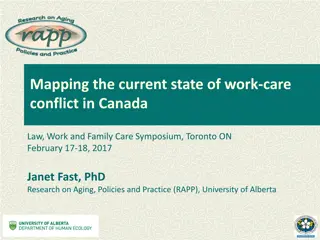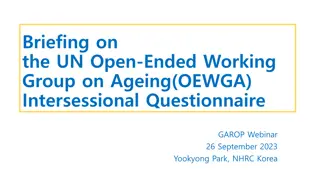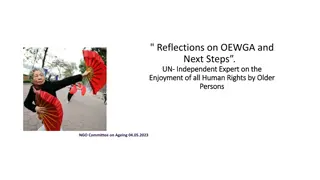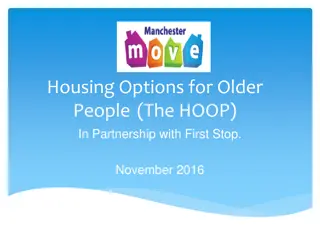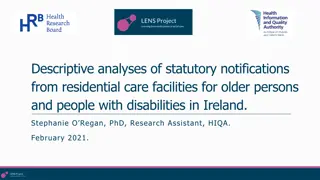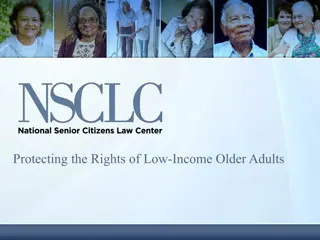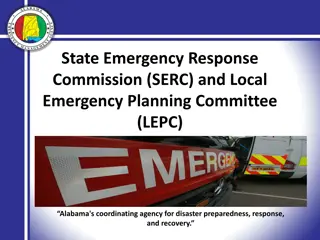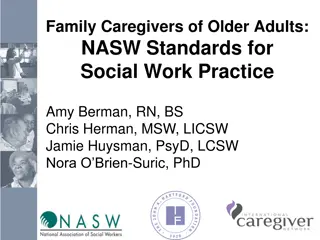Essential Guide to Emergency Room Care for Older Persons and Caregivers
Older persons and their caregivers need to be well-informed about emergency room care. This guide covers key aspects such as services provided in emergency departments, differences between emergency, inpatient, and outpatient care, observation billing, what to bring to the ED, and the CARE Act for caregivers. Understanding these elements can help ensure a smoother experience and better outcomes for older individuals requiring emergency care.
Download Presentation

Please find below an Image/Link to download the presentation.
The content on the website is provided AS IS for your information and personal use only. It may not be sold, licensed, or shared on other websites without obtaining consent from the author. Download presentation by click this link. If you encounter any issues during the download, it is possible that the publisher has removed the file from their server.
E N D
Presentation Transcript
Emergency Room Care- What Older Persons and Caregivers Need to Know Ruth Leslie, Hospitals and Diagnostic & Treatment Centers
2 Emergency Departments Provide: Emergency care Diagnostic tests Access to specialists Decision to admit, transfer or discharge Referrals to outpatient follow-ups: primary care, substance use, mental health, specialty care
3 Emergency care vs. Inpatient care vs. Outpatient care Emergency department care classified and billed as outpatient care Emergent and urgent care Observation classified and billed as outpatient care Ambulatory care Inpatient care = higher level of care Intensive care units Medical/surgical beds
4 Observation Billed as an outpatient Observation can take place in An observation unit An inpatient bed An emergency department bay in a Critical Access Hospital (<25 beds) Will not feel or look different than an inpatient admission
5 Observation Hospitals are required to give patients a notice stating that they are in observation status with 24 hours of assignment MOON=Medicare Outpatient Observation Notice (2016) State statute (effective 1/19/2014) Can have billing and placement issues if discharge to skilled nursing facility from the hospital (requires 3 midnight qualifying inpatient admission vs. observation) Significant discussion and litigation on this point at the federal level
6 What Should you Bring to the ED: Leave valuables at home! A family member or friend Insurance card Bring current medication list typed or written neatly Health care proxy
7 CARE Act (Caregiver Advise, Record and Enable Act), effective April 23rd, 2016 Hospitals are required to ask if you have a caregiver Patient can designate a caregiver Caregiver does not have to be a spouse or family member- can be a neighbor or friend The caregiver is entitled to education and information prior to discharge of the patient Important to reduce readmission
8 Your Rights as a Hospital Patient in NYS Booklet given to admitted patients Information about rights as an inpatient including the Patient s Bill of Rights and how to file a discharge appeal How to file a complaint Instructions/forms for DNR & Health Care Proxy https://health.ny.gov/professionals/patients/patient_r ights/ Available in English and 6 other languages
9 Veteran s Bill (effective 12/8/16) Benefits apply to all who have served in the military Law makes clear that benefits are not dependent on war time service If one has served, the hospital is obligated to provide information on Veteran s benefits Information for Veterans concerning Health Care Options fact sheet https://veterans.ny.gov/sites/default/files/VA%20LOCATIONS.PDF https://health.ny.gov/professionals/hospital_administrator/lett ers/2017/2017-02-16_dal_17-05_vets_law.htm
10 Complaints Patient s Advocate Patient s Advocacy Office Charged to assist patients Can help when patient is in the hospital Resolve issues before they become complaints Investigate complaints lodged against the hospital
11 Complaint Intake Program Intake telephone line 1-800-804-5447 Complaint form written https://health.ny.gov/facilities/hospital/complaint/complaint_fo rm.htm
12 Discharge Appeal The law requires that you receive advance notice in writing telling you: the date the physician and/or hospital plans to discharge you; how to appeal if you wish to remain in the hospital; Quality Improvement Organization (QIO) for Medicare patients is Livanta = 1-866-815-5440
13 Discharge Instructions ED and Inpatient Required to give instructions What to do if symptoms come back Refer back to MD if you have one Is follow-up care needed? Communicate with your primary care physician to notify them of any ED visit or admission
14 Questions? Division of Hospitals and Diagnostic & Treatment Centers 518-402-1004 hospinfo@health.ny.gov
